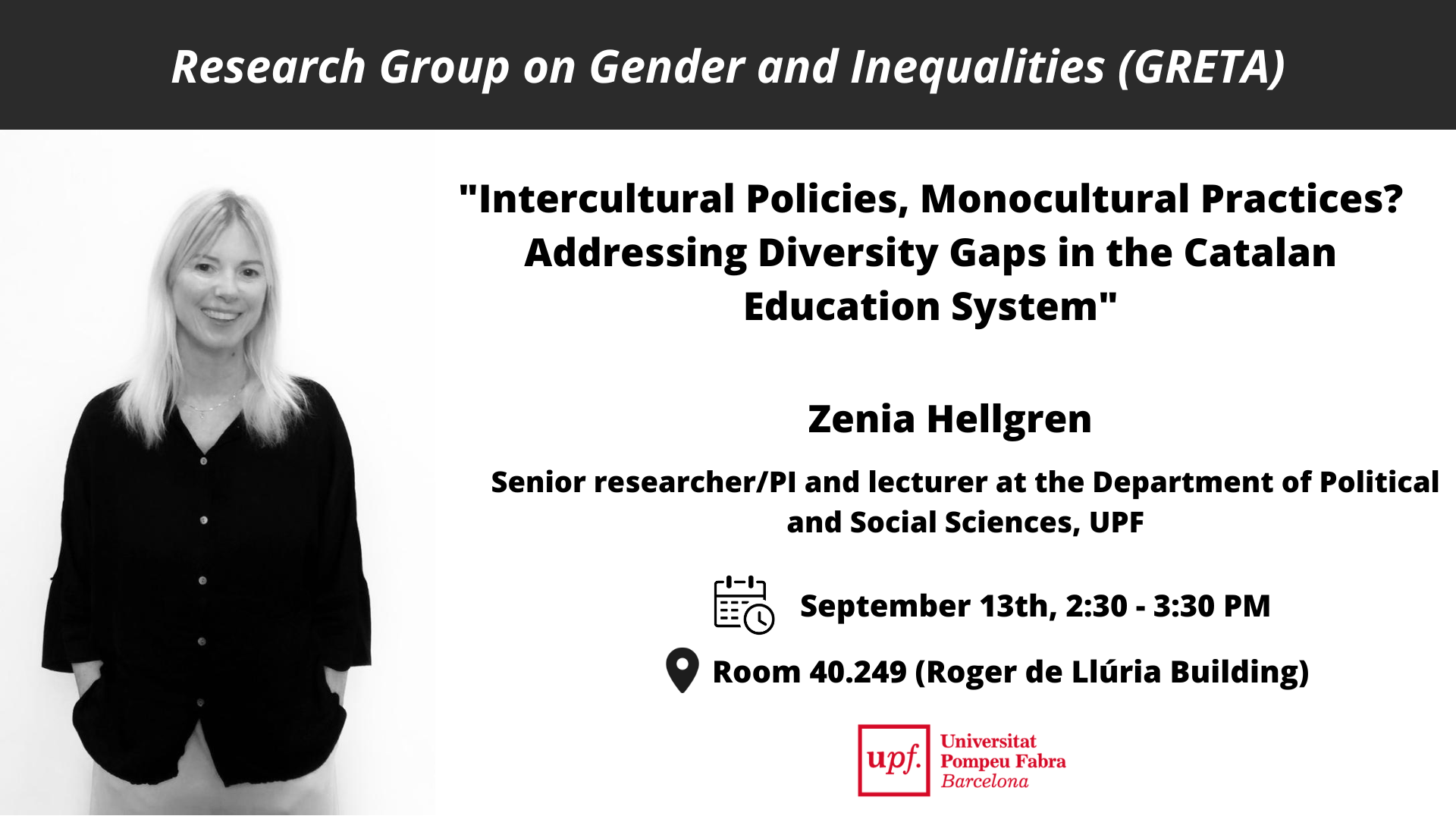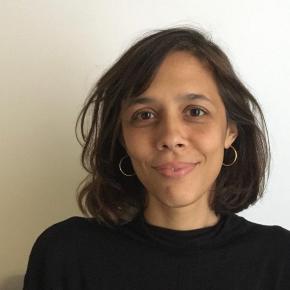Seminar "Intercultural Policies, Monocultural Practices? Addressing Diversity Gaps in the Catalan Education System"
Seminar "Intercultural Policies, Monocultural Practices? Addressing Diversity Gaps in the Catalan Education System"
Seminar "Intercultural Policies, Monocultural Practices? Addressing Diversity Gaps in the Catalan Education System"

Next week we will be hosting our third open seminar. We will be hearing from Zenia Hellgren who is Doctor of sociology from Stockholm University (2012), senior researcher/lecturer at the Department of Political and Social Sciences, UPF, and a member of the research groups GRITIM and GRETA. Her research principally engages with inclusion/exclusion and inequalities in multiethnic societies and aims to be socially transformative. Currently, she is the PI of the EU-funded research-action project REACT which addresses racism in schools. She has published extensively in her field; for a full list of her projects and publications see her personal website: https://www.upf.edu/
The presentation will take place on September 13, 2:30-3:30 pm, in Room 40.249 (Roger de Llúria building)
In a European landscape of immigration and integration policies that are increasingly influenced by far-right, populist agendas, the Spanish autonomous region of Catalonia stands out for its intercultural approach. Simultaneously, inequalities affecting migrants and racialized minorities in Catalonia are huge, as elsewhere in Spain, and racism is reported to grow alarmingly. This makes it a particularly interesting case to study the gaps between policy and practice in the field of diversity management.
Based on extensive fieldwork conducted between 2017-2023 in the frameworks of three different research projects, this chapter engages with the apparent paradox that serious problems with ‘ethnic inequalities,’ racism and discrimination are widespread also in an open, tolerant, and pro-diversity policy framework. In fact, there is no guarantee that intercultural policies mitigate these phenomena in practice. I take the case of diversity management in the pronouncedly intercultural Catalan education system in order to examine if/how inclusive diversity policies shape access to belonging for migrants and other racialized groups. I argue that the gap between intercultural policies and discourses on the one hand, and the difficulties involved in translating these into more egalitarian, anti-racist, and inclusive practices on the other hand, constitutes an Achilles’ heel for the intercultural project: in its endeavour to avoid controversies and bring the vast majority of society on board, its transformative impact becomes harder to achieve

